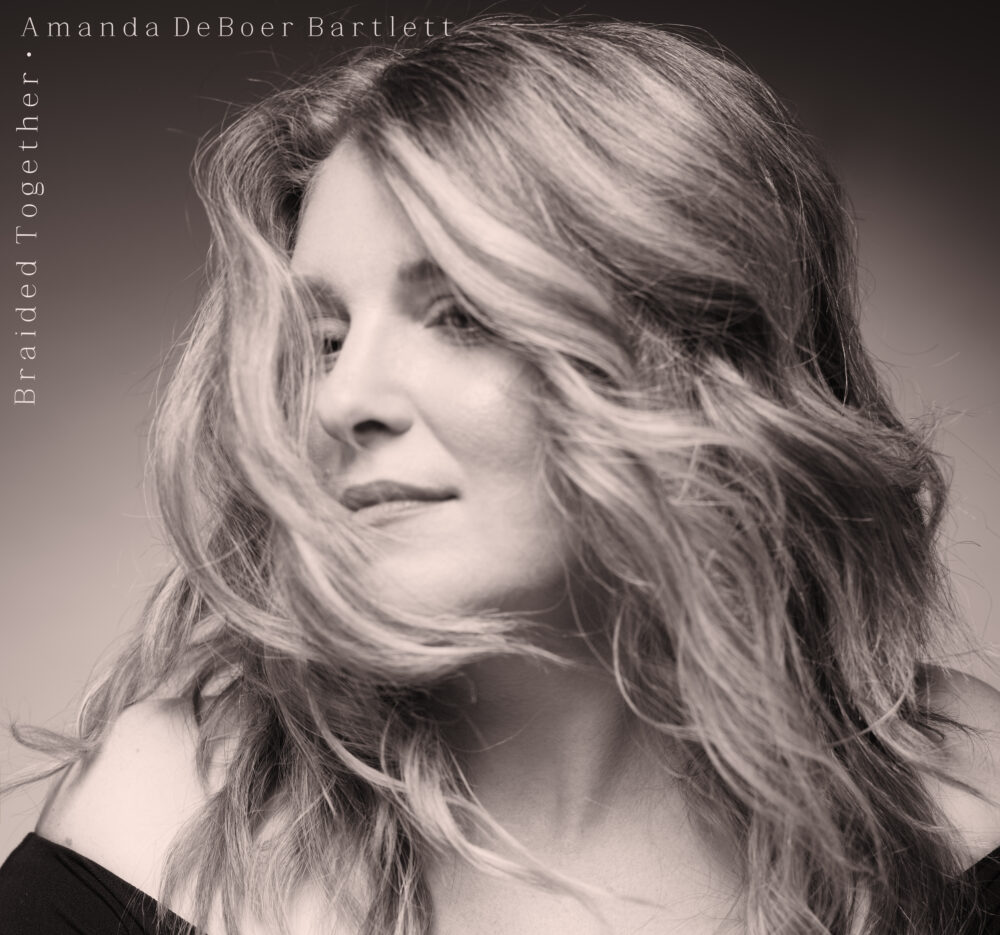Fine songs about children and motherhood, set to only intermittently great music.
 A common way for P.R.s to direct the attention of reviewers to an album is “RIYL,” which stands for “Recommended If You Like”. In the case of Amanda DeBoer Bartlett, the suggestions are Emmylou Harris, Eva Cassidy, Sandy Denny, and Joni Mitchell.
A common way for P.R.s to direct the attention of reviewers to an album is “RIYL,” which stands for “Recommended If You Like”. In the case of Amanda DeBoer Bartlett, the suggestions are Emmylou Harris, Eva Cassidy, Sandy Denny, and Joni Mitchell.
Listening to the decidedly Celtic ‘Storm’, the comparisons are more Alison Krauss singing with The Chieftains. ‘I dunno jack’ (the lower-case spelling is hers) is a country piano ballad which speaks to a subject any new parent will recognise. “They didn’t send me home with clear instruction… Now there’s never time to work or dream or shower.” Her writing is insightful, and the simple melody works just well enough to support the words.
‘I Have No Home’ is another superficially simple tune, which uncovers her roots in chamber folk and contemporary classical music. The almost avant-garde synth washes fill the sound with complexity behind the basic tune.
The variety of styles across the first four songs does make it a little hard to get a feel for who Amanda DeBoer Bartlett is as an artist. ‘Skyscraper’ is a bluesy jazz number which shows where the Eva Cassidy comparison comes from. Guitarist Luke Polipnick plays fills which wouldn’t have been out of place on a Steely Dan album, and a church organ swells behind the rest of a slightly crowded arrangement. Next, we are back to Alison Krauss’ country territory with her single ‘Quick Trips.’ “Written while touring with babies in tow, it’s a tender, road-worn reflection on gas station coffee, fleeting cities, and the disorienting beauty of life in motion.” The chorus is a great observation on the fleeting nature of musical life. “How long do I get on this ride? Another quick trip, peeling off in the night. Always leaving, but I never do seem to arrive.” The song shifts back towards a more jazz sound in the last verse, which rather undermines the potentially radio-friendly song.
‘Lincoln Highway,’ named for the first transcontinental highway in the US, shifts again with Emma Hospelhorn’s flute bringing back the classical influence, with DeBoer-Bartlett’s background vocals turning this into a tone poem more than a song.
And so, the album rolls on with each song shifting from style to style. Lyrically, the best songs are the ones which talk about her children ‘Nell My Bell’ is genuinely lovely and would have been a good choice as a single, as it is, as with ‘I dunno jack’, very relatable.
The title song, addressed to her mother braiding her hair as a child, is just voice and piano and easily the best thing on the album. ‘Papio’, which follows it integrates her Celtic and country leanings better than anything else on the album. In fact, the last four songs on ‘Braided Together’ have a musical unity lacking elsewhere. ‘Sweet Annie’ pulls in the flute again but uses it more effectively than previously, allowing it to colour the basic guitar backing rather than produce dense volumes of sound.
Having failed to find a credit for a producer, Evelyn Thom is listed only as assistant producer; you have to assume that production duties were taken on by DeBoer Bartlett herself, which may explain why the album feels more than a bit disjointed in place. Many of the songs are individually just fine, but the album needed a firmer hand on the controls to achieve a more cohesive sound and to press the edit button on some of the arrangements. Breaking out some of the songs into a shorter album, focusing on her excellent songs about motherhood, might have made for a good plan, with the rest saved up for an E.P. of Celtic country tunes.
Amanda DeBoer Bartlett is a good singer and has an excellent observational writing style. With an outside producer supporting her vision, she could well make a classic of her next album.


